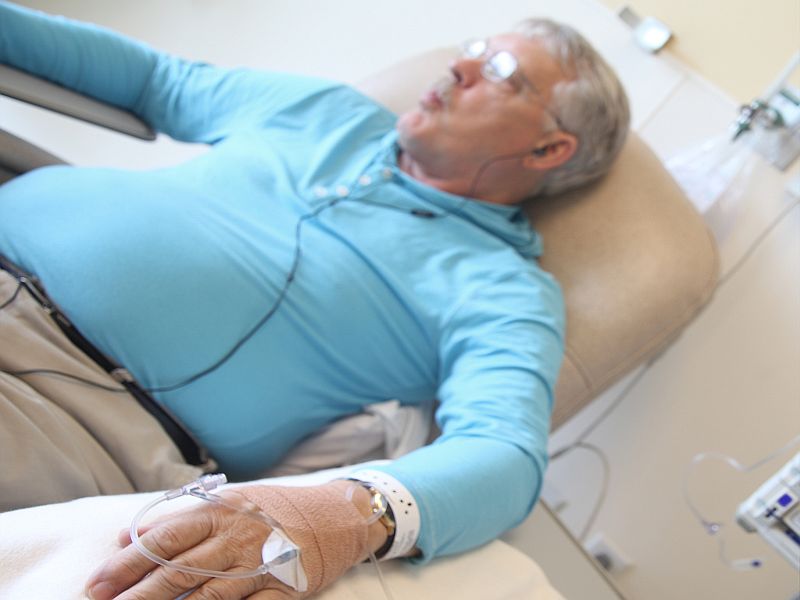TUESDAY, Oct. 24, 2017 (HealthDay News) — The high cost of cancer care in the United States has led more than one-quarter of patients to cut back on some part of their treatment, a new survey reveals.
Commissioned by the American Society of Clinical Oncology (ASCO), the report found that 27 percent of cancer survivors or close relatives of a cancer patient said they’d skipped doctor visits or taken other steps to reduce health costs.
To save money, nearly one in 10 said they had avoided doctor appointments. Eight percent had refused treatment; postponed filling or not filled prescriptions; or skipped doses of prescribed medications. And 7 percent said they had cut pills in half, according to the survey of more than 4,000 adults.
Such measures can jeopardize treatment success, ASCO says.
“We should all be alarmed that Americans are potentially risking not only their health, but also their lives, due to high treatment costs,” ASCO Chief Medical Officer Dr. Richard Schilsky said in a news release from the group.
“No patient or family member should have to face an impossible choice — between their cancer treatment and food, shelter, clothing and other necessary expenses,” Schilsky said.
“Adjusting the prescribed dose of a cancer medication either by skipping doses or cutting pills is dangerous, and many health care providers may be unaware that their patients are putting themselves at risk this way,” he noted.
Most survey respondents said the federal government should take action to lower prescription drug costs.
For example, 92 percent said Medicare should be allowed to directly negotiate prescription drug prices with drug makers, while 86 percent said the government should regulate the price of cancer drugs to lower their costs. And eight in 10 said it should be legal for U.S. residents to buy cancer drugs from other countries.
More than 90 percent also said the government should provide significant funding to diagnose, prevent and treat cancer. And nearly three-quarters said the government should spend more to develop cancer treatments and cures, even if it means higher taxes or adding to the deficit.
“Federal investment in cancer research plays a critical role in the search for new cures, and Americans clearly recognize this. This poll shows that people are not only expecting, but counting on Congress and the administration to invest more in research that will deliver the next generation of cures to patients,” said ASCO President Dr. Bruce Johnson.
“More funding for cancer research would mean more innovation, more studies launched, more patients enrolled in clinical trials, more researchers entering the field, and faster progress toward new and improved treatments for patients,” he said.
While supporting cancer research, Americans seem less willing to fund cancer prevention. Less than half the respondents said more should be spent on cancer prevention. And just 54 percent said the government should spend more to help Americans afford cancer screenings and care.
The survey also found many Americans unaware of certain cancer risks.
For example, less than one-third know that obesity and alcohol are risk factors for cancer.
The study, released Oct. 24, was conducted online by The Harris Poll from July 10-18, 2017.
More information
The American Cancer Society has more on cancer.
Copyright © 2024 HealthDay. All rights reserved.

